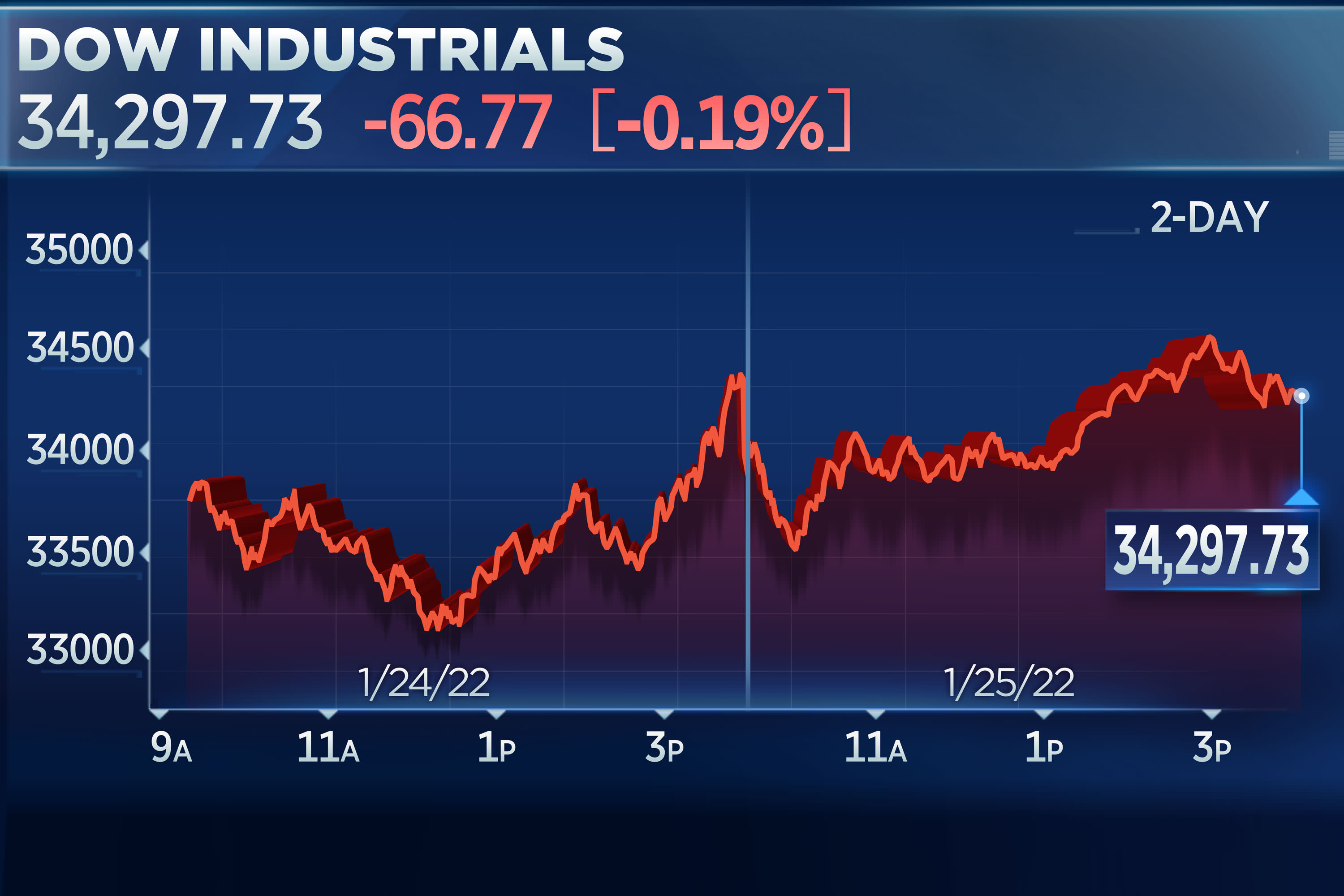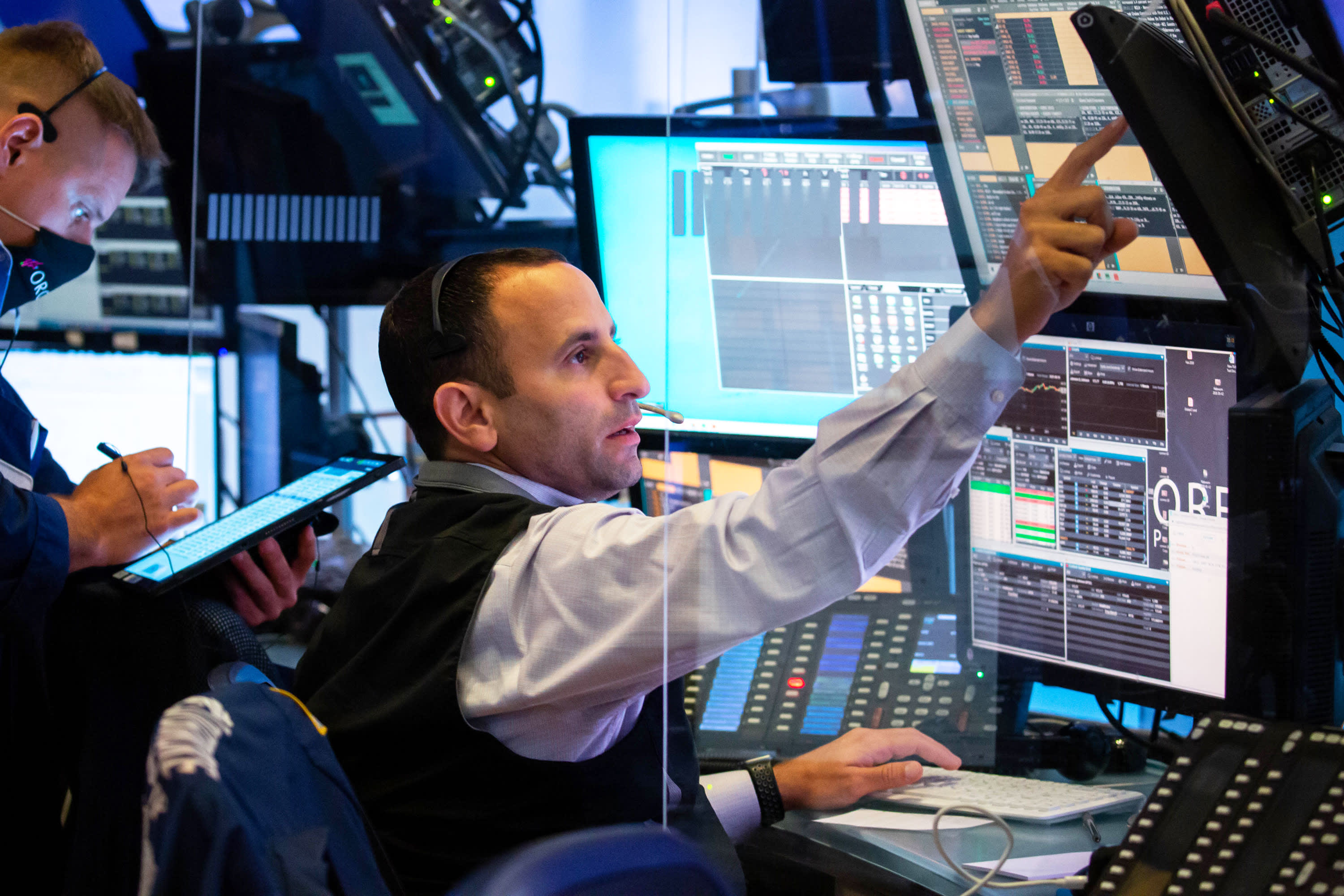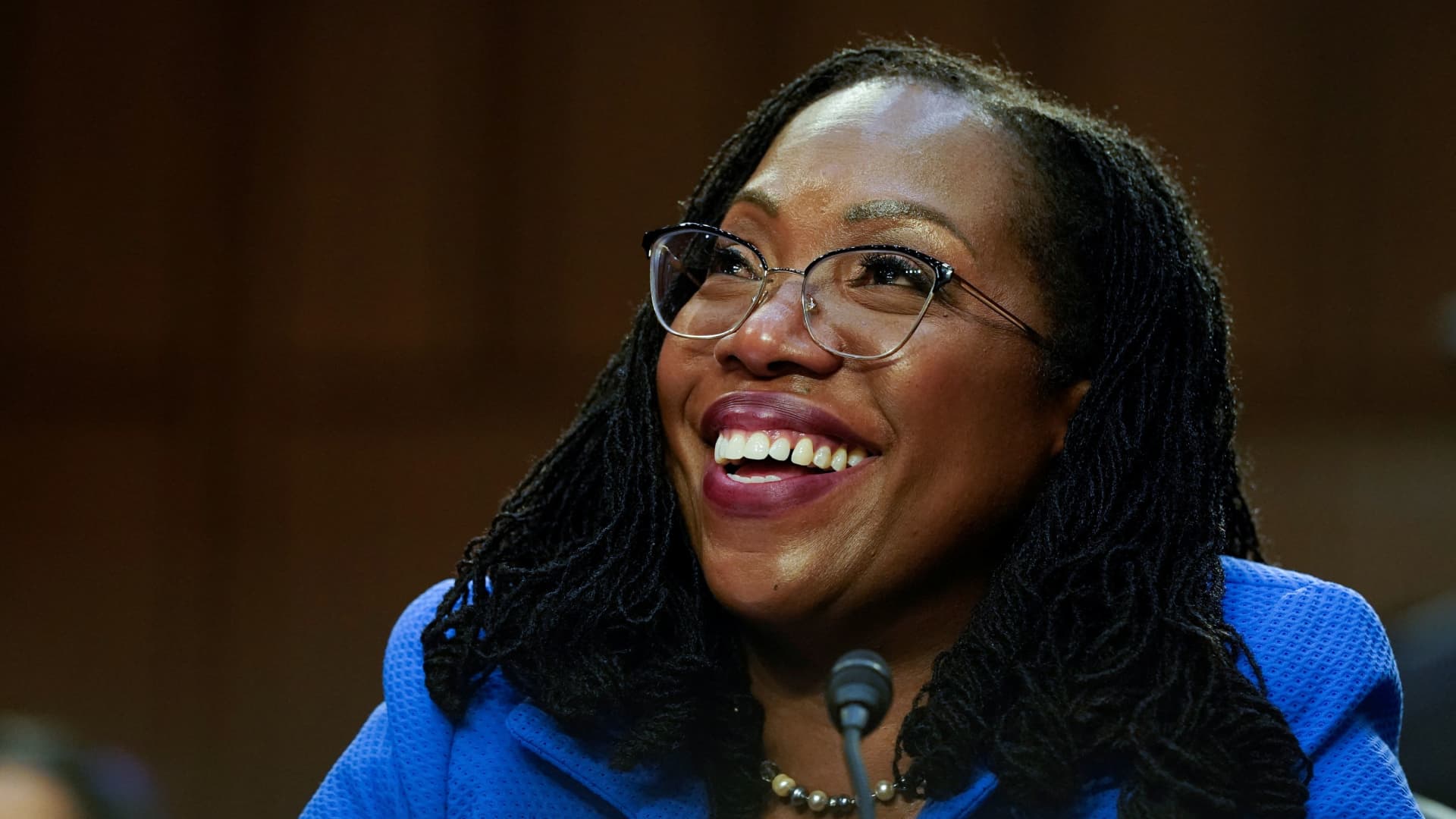Stocks fall after Walmart's profit warning, dragging other retail names lower
Walmart's announcement alarmed investors who weighed the implications for other retail stocks.

U.S. stocks fell Tuesday after Walmart cut its earnings forecast, sending other retail shares lower and adding to concern that consumer spending might not be strong enough to keep the U.S. out of a recession.
The Dow Jones Industrial Average fell by 128 points, or 0.4%. The S&P 500 lost 0.7% and the Nasdaq Composite declined 1.2%.
Walmart cut its quarterly and full-year profit estimates because of rising food inflation. This alarmed investors who deliberated the implications for other retail stocks. The big-box retailer said higher prices are spurring consumers to pull back on general merchandise spending, particularly in apparel.
Walmart plunged 8% Tuesday and dragged other retailers with it. Kohl's and Target dropped 7% and 4%, respectively. Apparel companies were hit hard, with Nordstrom down 6% and Macy's and Ross lower by 5% each. PVH lost about 4% and TJX Companies slid more than 3%. The SPDR S&P Retail ETF was down by more than 4%.
"The most important thing from the Walmart announcement is how inflation is changing what people buy," said Robert Cantwell, portfolio manager at Upholdings. "Food now makes up a bigger share of individuals' budgets, but overall spending still generally remains intact."
Elsewhere, General Motors fell 3.3% after the company missed earnings estimates, citing supply chain disruptions stemming from Russia's war on Ukraine and global Covid lockdowns. Rival Ford is scheduled to report results after the bell.
UPS shares fell 3%, despite the company posting earnings and revenue beats for the second quarter, after the shipping giant reported declines in its international and supply chain businesses.
On the flip side, Coca-Cola shares rose 2.2% after the beverage giant topped earnings and revenue expectations, citing a sales volume recovery from the pandemic and higher pricing.
Shares of McDonald's added nearly 1.7% following mixed second-quarter results, in which net sales were hurt in part by the closure of locations in Russia and Ukraine, but international growth elsewhere fueled a rise same-store sales.
Industrial stocks were earnings winners too. Shares of 3M rose 5% after beating earnings and revenue estimates and announcing plans to spin its health care business into a separate publicly traded company. General Electric posted better-than-expected results citing recovery in the aviation industry that boosted its jet engine business. Its shares gained almost 6%.
Traders are also bracing for an onslaught of mega-cap tech earnings and economic data this week, as well as the outcome of the Federal Reserve meeting, that will help Wall Street direct its expectations for the rest of the year.
"I think that there's going to be a bifurcated market," VantageRock Capital's Avery Sheffield said during CNBC's "Closing Bell: Overtime." "I think the bottom might be in certain stocks, but nowhere in others. So this actually could be one of the most dynamic earnings seasons we've seen in a long time."
Stocks traded in a narrow range during Monday's session, with the S&P 500 adding 0.1%. The Dow Jones Industrial Average climbed 90.75 points, or 0.3%. The tech-heavy Nasdaq Composite lagged, sliding 0.4%. All of the major averages are on track for their best month of the year.
Fed meeting and the market's expectations
On Tuesday, the Federal Reserve commenced its two-day policy meeting. Traders are widely expecting a three-quarter percentage point hike and will be looking for clues on the future interest rate path and what it could mean for equity market pricing.
"We expect the Fed will signal that they are still following the data and leave the door open for at least one more 75 bps increase – if not multiple 75 bps rate increases – and market interest rate expectations will become less sanguine about the Fed pausing rate hikes any time soon," said Chris Zaccarelli, chief investment officer for Independent Advisor Alliance.

 Lynk
Lynk 































